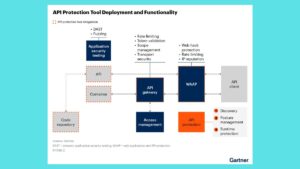The Role of CHROs in Driving HR Tech Adoption: Transforming the Future of Workforce Management

In today’s rapidly changing business landscape, technology is reshaping the way human resources (HR) functions. As organizations embrace digital transformation, Chief Human Resources Officers (CHROs) are taking on a more strategic role in driving the adoption of HR technology (HRTech) to optimize workforce management, enhance employee experiences, and achieve business goals. This blog explores the evolving role of CHROs in leading HRTech initiatives, the benefits of implementing these technologies, and the key trends shaping the future of HRTech.
The Expanding Role of CHROs in the Digital Era
Traditionally, CHROs have been responsible for managing HR functions such as recruitment, talent management, and employee relations. However, with the rise of HRTech, their role has expanded to include leading digital transformation efforts within the HR domain. Today, CHROs are expected to be strategic business partners who leverage technology to drive efficiency, innovation, and growth.
CHROs are uniquely positioned to understand the needs of the workforce and align HR technology strategies with overall business objectives. By championing the adoption of HRTech, they can help their organizations stay competitive in a fast-paced market, foster an agile workforce, and enhance the employee experience.
How CHROs Drive HRTech Adoption
CHROs play a critical role in the successful implementation and integration of HRTech within their organizations. Here are some key ways they drive HRTech adoption:
- Identifying and Selecting the Right HRTech Solutions
The HR technology landscape offers a wide range of tools and platforms, from recruitment automation and performance management software to learning management systems (LMS) and employee engagement apps. CHROs must carefully assess their organization’s unique needs and identify the HRTech solutions that will best support their goals.
- Needs Assessment: CHROs work with HR teams and other stakeholders to understand existing pain points and future workforce requirements. This helps them identify the HR functions that would benefit most from technology adoption, such as recruiting, onboarding, or employee development.
- Vendor Evaluation: CHROs are involved in evaluating different HRTech vendors, comparing features, scalability, and integration capabilities. They look for solutions that align with the organization’s culture and are flexible enough to adapt to changing business needs.
- Leading Digital Transformation in HR
As organizations undergo digital transformation, CHROs play a pivotal role in ensuring that HR processes are modernized and aligned with the broader digital strategy. This involves transitioning from traditional HR practices to technology-driven processes.
- Automating Manual Tasks: One of the primary benefits of HRTech is the automation of repetitive and time-consuming tasks, such as payroll processing, benefits administration, and compliance tracking. By automating these tasks, CHROs free up HR professionals to focus on strategic initiatives that add value to the business.
- Enhancing Data Analytics Capabilities: Digital transformation in HR goes beyond automation; it also involves leveraging data analytics to gain insights into workforce trends, employee engagement, and performance. CHROs lead efforts to use data-driven decision-making to optimize talent strategies and improve business outcomes.
- Driving Employee Adoption and Engagement
The success of HRTech initiatives depends on employee adoption. CHROs play a key role in fostering a culture that embraces technology and encourages employees to utilize new tools effectively.
- Change Management: Implementing HRTech requires careful change management to ensure a smooth transition. CHROs lead efforts to communicate the benefits of new technologies to employees, address concerns, and provide training to ensure that the workforce is comfortable with the new tools.
- Encouraging a Digital Mindset: By promoting a digital mindset and supporting continuous learning, CHROs help employees stay up-to-date with the latest technological trends. This mindset encourages employees to take advantage of new HRTech tools, leading to greater engagement and productivity.
- Measuring the Impact of HRTech Investments
To demonstrate the value of HRTech initiatives, CHROs are responsible for measuring their impact on key business metrics. This involves tracking the return on investment (ROI) and evaluating the effectiveness of different HR technologies.
- Key Performance Indicators (KPIs): CHROs use KPIs to monitor the impact of HRTech on various HR functions. For example, they may measure time-to-hire, employee retention rates, and employee satisfaction levels before and after implementing new tools.
- Continuous Improvement: By analyzing the results of HRTech initiatives, CHROs can identify areas for improvement and make data-driven adjustments to the technology strategy. This iterative approach ensures that HRTech investments continue to deliver value over time.
The Benefits of HRTech Adoption
The adoption of HRTech offers numerous benefits for organizations, helping them stay competitive in a rapidly evolving business environment. Here are some of the key advantages:
- Improved Efficiency and Productivity
HRTech automates routine tasks, reducing the administrative burden on HR teams and allowing them to focus on strategic initiatives. This improved efficiency translates into increased productivity across the organization, as HR professionals can dedicate more time to value-added activities such as talent management and employee engagement.
- Enhanced Employee Experience
Digital platforms provide employees with self-service options, enabling them to access HR services, update their information, and manage benefits without needing to go through HR personnel. This self-service approach empowers employees and enhances their experience, leading to higher job satisfaction and retention.
- Data-Driven Decision-Making
HRTech platforms offer data analytics capabilities that allow organizations to gain insights into employee performance, engagement, and turnover. By leveraging this data, CHROs can make informed decisions about hiring, training, and other HR functions, leading to better business outcomes.
- Scalability and Flexibility
As organizations grow, managing HR functions manually becomes increasingly difficult. HRTech solutions offer scalability, allowing businesses to add new users, functions, and capabilities as needed. This flexibility ensures that HR processes remain efficient and effective as the organization expands.
Key HRTech Trends Shaping the Future
The HRTech landscape is constantly evolving, with new trends emerging that will shape the future of workforce management. Here are some trends that CHROs should be aware of:
- AI and Automation in HR
Artificial intelligence (AI) and automation are transforming various HR functions, from recruitment to employee engagement. AI-powered chatbots can answer employee queries, while machine learning algorithms can analyze data to predict employee turnover and identify skills gaps. CHROs are leading efforts to integrate AI-driven tools that enhance HR operations and improve decision-making.
- Employee Experience Platforms (EXP)
Employee Experience Platforms (EXP) are designed to provide a unified interface for employees to access HR services, learning resources, and collaboration tools. These platforms aim to improve the overall employee experience by creating a seamless digital workplace environment. CHROs are increasingly adopting EXPs to foster engagement and support employee well-being.
- Remote Work and Hybrid Workforce Solutions
The rise of remote and hybrid work models has accelerated the adoption of HRTech solutions that support virtual collaboration, remote onboarding, and employee engagement. CHROs are responsible for implementing tools that facilitate communication, maintain productivity, and ensure a positive work experience for remote employees.
- People Analytics
People analytics is becoming a central component of HRTech strategies, enabling organizations to analyze workforce data and gain insights into employee behavior, performance, and engagement. CHROs are using people analytics to make evidence-based decisions and drive HR strategies that support business growth.
Conclusion
The role of CHROs has expanded from traditional HR management to leading digital transformation efforts that optimize workforce management and drive business success. By championing the adoption of HRTech, CHROs play a crucial role in modernizing HR functions, enhancing employee experiences, and leveraging data-driven insights.
As HRTech continues to evolve, CHROs will remain at the forefront of implementing new technologies that address emerging challenges and shape the future of work. Their strategic leadership ensures that HRTech initiatives deliver value and help organizations build agile, resilient, and high-performing workforces.






